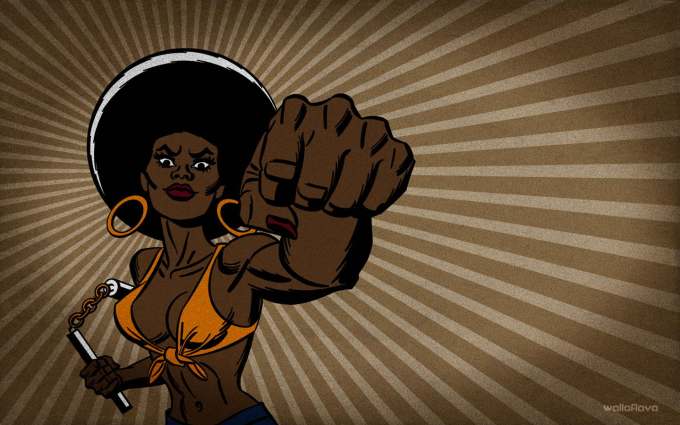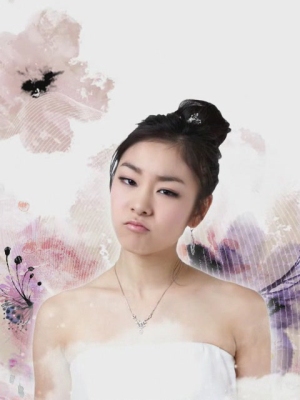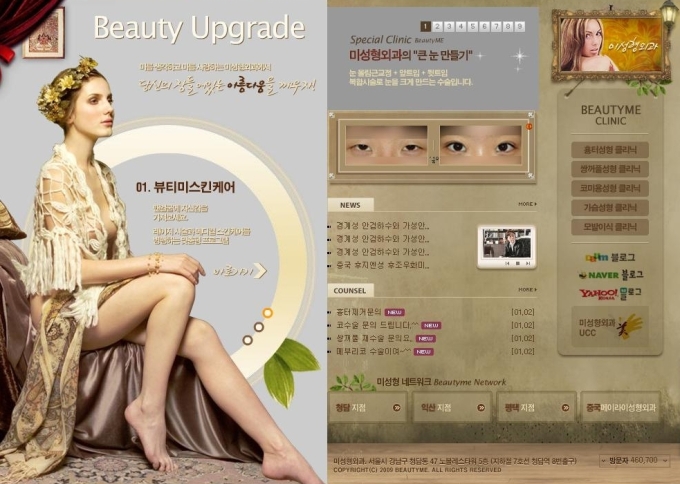I’ve never done any systematic study of advertisements for Korean cosmetic surgery clinics. But still, I’d wager that the overwhelming majority do not feature Caucasians.
And why should they? Like frequent commenter Whatsonthemenu pointed out in an email to me, she has never seen a tanning product advertisement in North America, for instance, that used a model of African descent, and most models look European or possibly Hispanic. Similarly, advertisements for hair straightening products, generally aimed at Black women, always use Black models (usually light-skinned ones), never Caucasian or Asian.
One reason for this is that correlation does not imply causation, and that tanned Caucasians happen to look darker does not necessarily mean that they want to look like Africans. Rather, the consensus view of tanning’s origins is that it developed as a status symbol, implying the wealth to take vacations to warmer climes.
In the case of hair-straighteners however, let me pass on Whatsonthemenu’s comment that “the desire for straight hair almost certainly originates in the desire to look closer to Caucasians,” and that this stems from back when house slaves, who were more likely to have Caucasian fathers or grandfathers, had higher status than field slaves. Which leads one to ask what Caucasians’ absence in advertisements implies?
Perhaps that when it comes to something as personal as dramatically altering one’s body and/or appearance in particular, there is a universal tendency to deny one might be imitating some aspect of another culture, race and/or ethnicity? After all, not to implies acknowledging a (perceived) flaw with your own, unlikely to go down well with other members of it.
Which is what makes this exception to the rules so interesting.
 ( Source above, below: unknown )
( Source above, below: unknown )
Whatsonthemenu noticed this advertisement for the BeautyMe Clinic on The Chosun Ilbo’s website last weekend, clicking on which took you to their homepage above. The Caucasian woman you see there is featured quite prominently throughout the site, and, judging by the the single page discussing double-eyelid surgery for men also featuring a Caucasian man, the choice of her race is not due to mere laziness or accident on the web designer’s part.
So why?
One obvious answer is that some Korean cosmetic surgery patients genuinely do want to look more Caucasian. But I think that they’d be a very small minority, even among those getting only those procedures that ultimately have that effect. Meanwhile, probably the vast majority don’t have that goal, either explicitly or subconsciously, and would justifiably take great offense at the suggestion.
 However, clearly the intended customers would have no problems with associating cosmetic surgery in general and/or specific operations with Caucasians, nor find the choice of the model’s ethnicity strange. If they did, then presumably the proprietor of BeautyMe Clinic and others with similar advertisements (see here and here) would have chosen a Korean woman instead, as most do.
However, clearly the intended customers would have no problems with associating cosmetic surgery in general and/or specific operations with Caucasians, nor find the choice of the model’s ethnicity strange. If they did, then presumably the proprietor of BeautyMe Clinic and others with similar advertisements (see here and here) would have chosen a Korean woman instead, as most do.
Yet they didn’t, and that those (positive or neutral) associations presumably existed prior to exposure to the advertisement puts paid to any notion that “Caucasianness” has had absolutely no role in Koreans’ modern ideals of beauty. And, in turn, to the notion that Koreans finding light skins and double-eyelids and so on attractive today are merely continuations of unaltered historical Korean tastes that existed prior to contact with Caucasians. Indeed, like blogger Michael Hurt wrote in 2005, it’s high time to acknowledge:
…the big, fat, white elephant in the room that is America and the West. You have to consider how having white skin here in Korea is not simply a matter of lightness anymore, of being a sign that one doesn’t have to work outside in a field. The relative pallor of one’s skin is now inevitably linked to notions of civility and class that are also reflected against the very real presence of white people, who are not surprisingly, positively associated with notions of civility and class.
But, and I stress, to do so is not to deny a role – and probably a much greater role – for historical Korean beauty ideals (and definitely not to claim that Koreans just “want to look White”). For a sense of the weight of the respective roles of each, and their possible mechanisms, please see the debate in previous posts.
(For all posts in the Korean Sociological Images series, see here)
Posted in Korean Men's Body Images, Korean Sociological Images, Korean Women's Body Images, Readers' Emails Tagged: Caucasian, Caucasians, Cosmetic Surgery, 성형수술, Korean Cosmetic Surgery, Skin-whitening




Recent comments